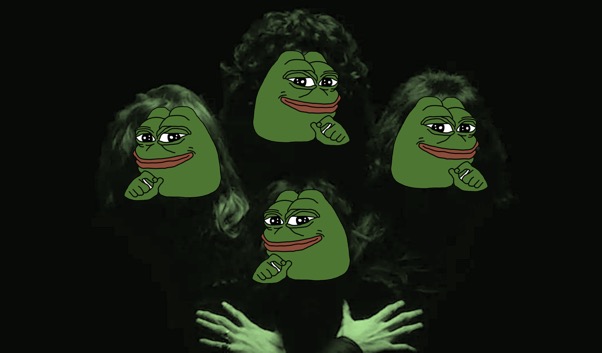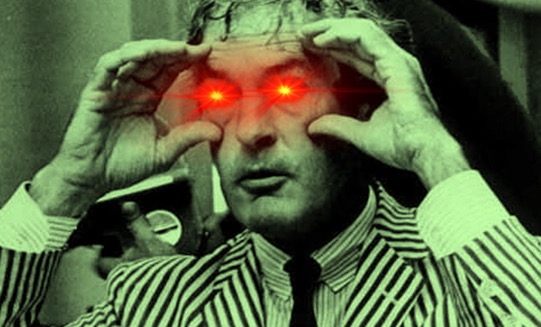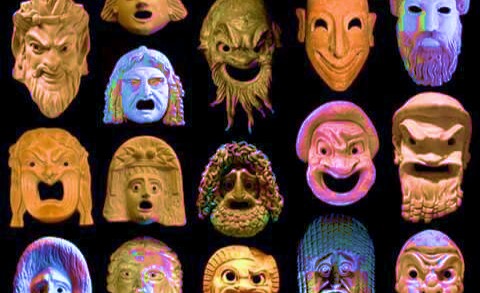Ideologues seem incapable of doing so without resorting to name-calling.
Bronze Age Manhood

Traditional conservatives could use a fresh rhetoric of masculinity.
Never one to tread lightly, Michael Anton has written in the Claremont Review of Books that no one is reading the Claremont Review of Books. Or rather, not exactly no one: just not the cool kids. Supporters will be relieved to note that readership numbers for the CRB are actually at an all-time high. But Anton’s point is about something more worrisome than circulation—it’s about the signs of the times. It’s about an energetic coalition of gifted college kids and young professionals who should be the next generation of conservative American patriots, but aren’t.
Anton, a lecturer in politics at Hillsdale College, is well placed to take the pulse of edgy, plugged-in twenty-somethings with a justified disdain for the identitarian Left. These dissidents ought to be very receptive to things like Natural Law theory and constitutional originalism. Certainly they are fed up with the bitter wokescolds who ceaselessly peddle weaponized mewling to their more gullible peers. But, writes Anton, “all our earnest explanations of the true meaning of equality, how it comports with nature, how it can answer their dissatisfactions, and how it’s been corrupted—none of that has made a dent.” These are the kids who aren’t reading the CRB.
They aren’t reading National Review either. Or City Journal, or any of the respectable publications which task themselves with explaining why the founding form of our American regime is the best way to secure human flourishing and liberty. Instead, right-leaning young people are leaning all the way over to the so-called Alt-Right and perhaps even beyond, drawn by markers of the new movement like Bronze Age Mindset. BAM, as it’s called, is a self-published manifesto and runaway Amazon hit by the pseudonymous Twitter personality Bronze Age Pervert, a.k.a. BAP.
Now I, for my sins, have read Bronze Age Mindset. Perhaps this is because I am still one of “the youth,” just barely, and my sympathies better align with the laws of nature as the Founders understood them than as BAP and his devotees do. I bought BAM upon reading Anton’s review because I wanted to understand its appeal. I wanted to know why so many people around my age think that BAP can rebut hyper-progressivism more effectively than Aristotle and The Federalist can.
It’s an urgent question. I find identity politics every bit as suffocatingly noxious in its sway over the discourse as do my slightly younger colleagues. But if a principled conservatism actually is the solution, it has to let in some fresh air too. If we on the more traditional Right can see what BAM offers young adults that we don’t, then maybe we can update our message a little to get through to them.
Of Memes and Manhood
For one thing, I think there’s a rhetoric problem. BAM is written in what Anton calls “internet pidgin.” I would be more inclined to say that BAP’s language is rooted in meme-speak. This highly allusive form of online jargon is famous for brevity and for ironic invocations of shared cultural reference points. BAP’s diction is designed for writing coded invective, for inserting yourself into obscure controversies and making elaborate diagnoses of a society in leftism’s chokehold. Effective use of meme-speak communicates, or aims to communicate, that its author is irreverent, savvy, and uncowed by any form of dogma.
BAP is a poet of meme-speak. Like all good poets, he takes the linguistic resources already available to him and manipulates them into something newly expressive. What he has seen is that internet slang is not just cutesy and clever: it is mythic. Because it is piled high with references, it is rich in metaphor and symbolism, in connections between stories and ideas that are more deeply felt than they are clearly articulated. Here is an example of BAP in full flow from his preface:
I wanted to expose the grim shadow of a movement that is hidden behind events of our time and from before. This is a great power that acts like a ghost. It hides in its own darkness and it has been absorbed by the lands and the peoples so that you can’t really see it anymore. There is just an eldritch quality embedded in things and on some faces. The same was said of Hades.
It will eventually become clear that this “great power”—a chthonic force hell-bent on repressing our will to truly live—is what BAP sees as the ultimate oppressor of the valorous in our degraded times. It is the active ingredient in political correctness and identity politics, but also in office culture and the federal government. A major premise of BAM is that said power has become dominant and must be overthrown.
But look at how he introduces the concept. Slowly, with ominous foreshadowing and a feeling of inchoate angst. Resonant with his readers’ nagging sense of being beaten down by entities so completely in control that they have become impossible to see. Mixing concepts embedded in the Zeitgeist (the adjective “eldritch” is a buzzword among hardcore video gamers) with names of a more canonical pedigree (“The same was said of Hades”), BAP attains a tone of high dread. Only true initiates may learn more: “I can’t say here, you must wait.” Meanwhile, he invites us deeper down the rabbit hole. “You don’t see yourself as you really are,” he says, “but maybe some nightmare can show it to you. I am here to show you the way out.” To compare great things with small: meme-speak has found its Milton.
BAP’s vulgar eloquence is vital. His readers may not think much of Milton, but they know the meme-world well. There, in that world, a sense of legendary evil and a soaring urge toward heroism run deep beneath surface irony. What BAP really offers, what makes him so compelling to readers of a certain age, is manhood—the unabashed celebration of it, the bracing aspiration to its purest form. Masculinity saturates BAP’s whole book like pheromones: “who can look at the beaten-down males of today and…have anything but disgust for their clownish parody of masculinity!”
On this score it has been suggested that BAP, whose Twitter feed prominently features tributes to the muscular male physique, is actually a not-particularly-covert advocate of Spartan love. These insinuations largely strike me as puerile, and anyway they miss the point: BAP’s odes to beefcake are aimed first and foremost at illustrating and celebrating what he considers the acme of virility. Whether or not BAP personally is gay, which I doubt, as a public figure he is as dismissive of homosexuality as he is of all other perceived deficiencies in testosterone. BAP the performance artist, at least, is confident in his conviction that men—all men, without exception—should ideally be strong, aggressive, heterosexual, and brave.
This is immensely refreshing even if somewhat extreme. After all, in this area, BAP really is up against a domineering and ubiquitous effort to snuff out or explain away every one of the natural impulses that make men act like men. This effort may be meaningfully traced back to 1990, when the philosopher Judith Butler scored an unlikely hit with her book Gender Trouble. Since then an ever more culturally dominant Left has bought into an ever more radicalized version of Butler’s thesis, which has its roots in the extreme iconoclasm of early 20th-century anthropologists such as Margaret Mead. The thesis is essentially that arbitrary social norms, not innate biological factors, determine the differences in men’s and women’s behavior.
This thesis is false. It is so false that to be bullied into believing it is enough to drive a man mad. It would be a waste of space to recite here the still-lengthening list of studies which show that men and women differ at the level of neurological chemistry from the womb onward. For those interested, the Journal of Neuroscience Research devoted an entire issue to the topic in 2017, and Stanford Medicine ran a survey of recent findings in Discovery that same year. But you hardly need to read all that to prove the basic point, which every simpleton knows: men act differently from women.
Naked denial of this obvious fact is becoming a prerequisite to success in the upper echelons of academia, Silicon Valley, and the entertainment industry. Software engineer James Damore was fired from his job at Google, and university professor Jordan Peterson drew frantic protest at the University of Toronto, for daring to suggest that gender is neither fungible nor imaginary. Men, as the perceived perpetrators of all sexual oppression, are under concentrated fire: “we should be as suspicious of males who strongly identify as men as we are of white people who strongly identify as white,” wrote Occidental College Professor Lisa Wade in Public Books. The elite Left has now gone full-bore on its campaign to ostracize anyone who even acknowledges, let alone celebrates, the tendency of men to aspire toward masculine virtues like courage and integrity.
Yet the fact remains: we are embodied souls. Our two kinds of bodies grow into two different kinds of creature with two different ways of seeing and relating to the world. Attempting to erase this reality gains you nothing except an agonized hostility toward yourself and a contorted understanding of nearly every human phenomenon. And so the relentless push to deconstruct gender has left a generation of young people, men especially, feeling sickened, resentful, and embattled.
That is the generation to whom BAP speaks. His swashbuckling language hits home because it evokes a sense of danger and honors men’s yearnings for valorous adventure. His is the poetry of manly endeavor, of champions who face down dark forces and break the clawed grip of evil on the universe. BAP wants to overthrow the sickly weaklings who would unman him and his brothers. And God, it feels so good to hear someone talk that way.
We Band of Brothers
Which would be great, if it weren’t for all the proto-fascism. Here Anton has very ably highlighted the problem and the danger. He writes:
One cannot find in BAM any principled reason—or any reason at all—to reject or object to tyranny. Or to slavery, serfdom, perpetual peasantry, might-makes-right, warlordism, gangsterism, bullying, or other forms of what the religious and philosophic traditions call “injustice.”
BAP has a precise, even a sophisticated awareness of the problem at hand, but he does not have a sophisticated solution to it. His answer is basically for the best people to rise up and reclaim their dominance. That is an answer which raises all the old questions: how do we identify these best people? What justifies their power and ensures that they will rule virtuously? If it is simply their strength, then our idea of virtue is impoverished and will leave us at the mercy of merciless men.
Which means we can identify another flaw in BAM, one that invites something better to take its place. It is not only BAP’s concept of virtue that is lacking: it is also his concept of manhood. BAP disdains everything but the rawest kind of self-assertion and conquest in the males of our species. His ideal is the pirate: lawless, ferocious, and unfettered by genteel restraint. At one point BAP foretells “the emergence of brotherhoods of savage men who have decided to purify the earth and rid it of the infestation of the human-cockroach.”
If you find yourself characterizing certain classes of people as bugs to be exterminated, you have taken a very wrong turn which you might have avoided had you read your Elie Wiesel, or your Aleksandr Solzhenitsyn, or indeed your Bible, more closely. Therein lies the challenge and the opportunity for principled conservatives who wish to win over the young people currently reading BAM. Those young people have responded passionately to an author who finally came out to tell them the open secret that men are men. But what kind of men?
I suggest that BAP, without knowing it, has actually accepted a notion of manhood which in modern America is espoused and disseminated only by one group: feminists. It is leading-edge feminists who portray men as violence incarnate and reject masculinity as repressive of all emotion. The whole dirty trick of current-age feminism is to portray the worst flaws and excesses of sub-par men as the stuff and substance of manhood. “Toxic masculinity” is the term used by thinkers of this ideological stamp to condemn everything from spousal abuse to boyish roughhousing as evidence that being a man is being a bad human.
But it is only such feminists, and those who are blinded with rage against them, who think like this. When men are called boorish just for sitting with their legs wide on the subway, some of them are likely to respond in defiance by actually becoming boorish to spite their tormentors. True manhood, though, is not reactive in this way. It incorporates not only the instinct to fight but the instinct to protect; not only the desire for dominance but the chivalric training which channels that desire into civilization building and away from rapine. Acknowledgement and elevation of the complementary feminine virtues is a big part of this: men can hone their masculinity within their sexual identity group, but are often inspired to do so in fuller ways when called outside of it by the love of womanly women.
This is a vision of manhood with a long history in Western literature and philosophy. Most on the traditional Right hold it dear. Its intellectual underpinnings are to be found in Plato’s Laches and Aristotle’s Nicomachean Ethics Book III. Its refinement is taught by example in centuries’ worth of gallant poetry—in Beowulf, in Gawain and the Green Knight, in the Song of Roland. This true vision of manhood is at hand to answer the real, visceral longings of a heartsick generation. It is ours to offer them.
People my age and younger are so suffocated by gender theory, and so desperate for an antidote, that they will gladly take any book in which manhood is affirmed and encouraged. They will take it even if it comes, as it does in BAM, with a hearty helping of social Darwinism and a number of other, still nastier -isms lurking just around the corner.
To present a viable alternative, old-fashioned conservatives have to take young people’s need for inspiration seriously. Have they? Many are very good at explaining politics, but not so good at delivering valiant oratorical flourishes of the kind BAP is offering—poetry rooted in our nature. Nor have we really foregrounded the schooling in virtuous manhood and womanhood that our tradition offers. Fiscal responsibility, national sovereignty, judicial restraint—these are frequent topics at our symposia and on the covers of our magazines. But boldness, industry, the spirit of adventure and how to motivate it—these could use more attention and celebration from the Right’s intellectual leaders, especially in an age when technology is disenchanting popular liberal culture.
A new form of exhortation is called for. We must present individual liberty and Natural Law as keys not just to the logically correct life but to the humanly good life. We are the ones who can actually provide what BAP only seems to provide: an ennobling philosophy of gender which cuts through the moribund fables of contemporary leftism. Real conservatism—real in this sense—is filled with the manly vitality and womanly grace that gender theory so detestably neuters. It is the stuff of heroes and can save our place in the world. It wouldn’t hurt us to start talking like it.
The American Mind presents a range of perspectives. Views are writers’ own and do not necessarily represent those of The Claremont Institute.
The American Mind is a publication of the Claremont Institute, a non-profit 501(c)(3) organization, dedicated to restoring the principles of the American Founding to their rightful, preeminent authority in our national life. Interested in supporting our work? Gifts to the Claremont Institute are tax-deductible.
Our decadent elite cannot survive our technological transformation.
Nothing really matters, zany pervs can see.
The BAPists may be fun to read, but there is little of value beneath their empty aesthetic.
New artefacts overthrow old impostures.
What should the Right make of Bronze Age Pervert and his Twitter devotées?






